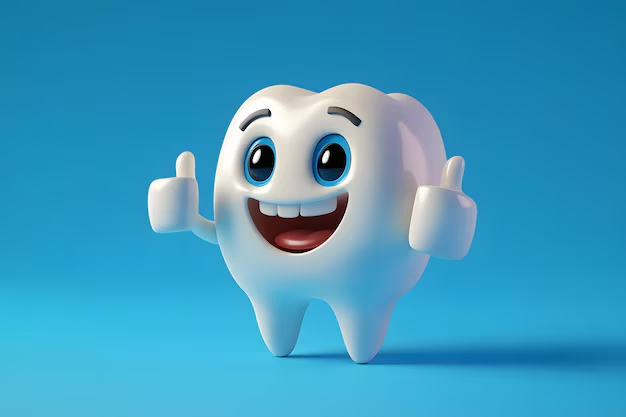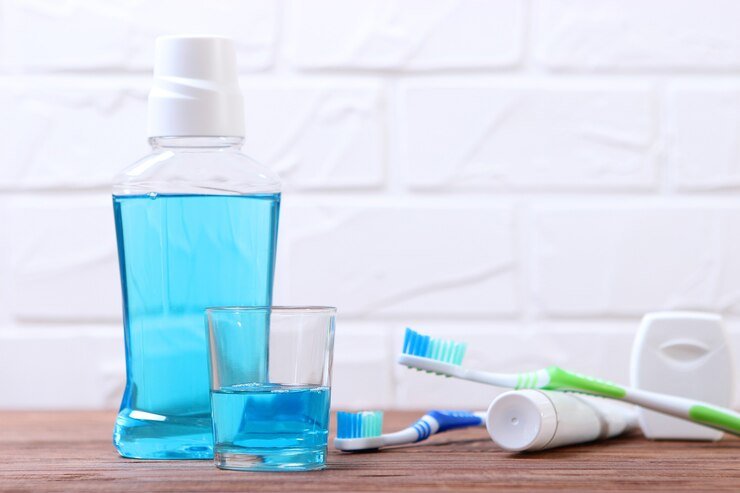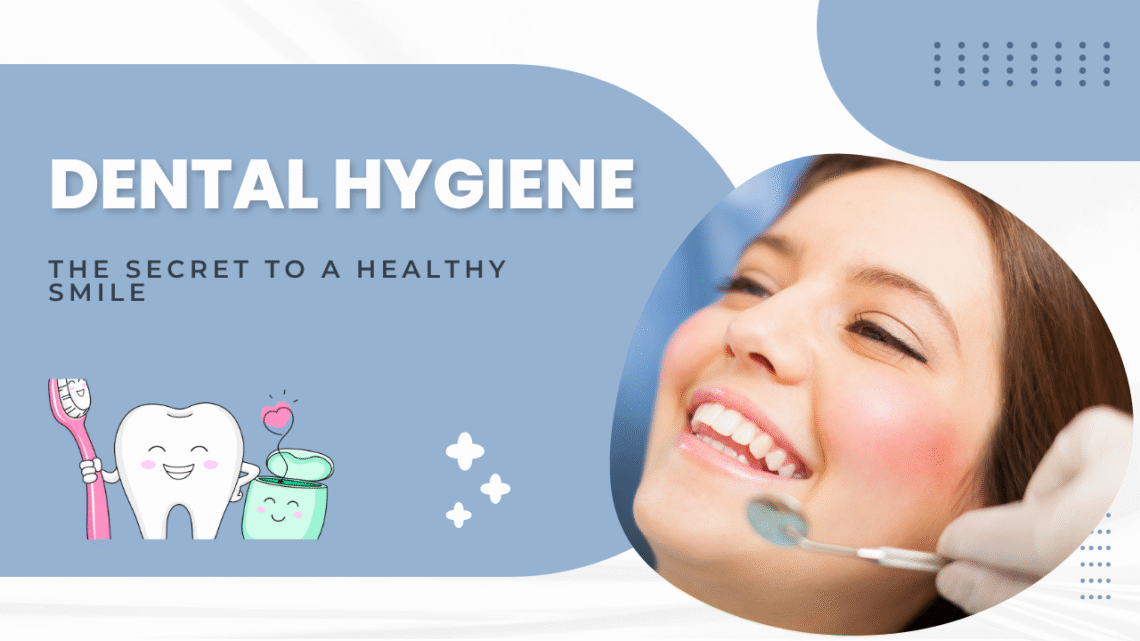Dental hygiene is more than just brushing your teeth—it’s the cornerstone of a healthy life. A clean mouth helps prevent gum disease, cavities, and bad breath, and it also plays a crucial role in your overall well-being. Numerous studies link poor oral health with serious conditions such as heart disease, diabetes, and respiratory problems.
Maintaining proper dental hygiene is essential not only for a healthy mouth but also for overall well-being. Practicing good dental hygiene every day helps you achieve and preserve a beautiful smile, enhances your self-confidence, and significantly reduces the need for costly dental treatments in the future. Daily habits like brushing, flossing, and rinsing with mouthwash protect your teeth and gums from common problems such as cavities, gum disease, and bad breath.
A clean and healthy mouth also contributes to better general health, as poor dental hygiene is linked to conditions like heart disease and diabetes. In this detailed guide, we’ll walk you through the importance of dental hygiene, essential daily practices, the role of professional dental care, and expert-recommended tips to ensure your oral health stays in top shape throughout your life. Developing consistent habits now can lead to a healthier, brighter future—one smile at a time.
Table of Contents
- The Importance of Dental Hygiene
- How Oral Health Affects the Body
- Key Elements of Daily Dental Hygiene
- Common Dental Problems & How to Prevent Them
- The Role of Professional Dental Care
- Top 8 Tips for Excellent Dental Hygiene
- Dental Hygiene for Children & Seniors
- Myths & Facts About Dental Hygiene
- The Future of Dental Hygiene: Technology & Trends
- Final Thoughts: Your Smile, Your Responsibility
1. The Importance of Dental Hygiene

Dental hygiene refers to the daily habits and practices that keep your teeth, gums, and mouth clean and healthy. Good dental hygiene is crucial not only for maintaining a bright, confident smile but also for preventing serious oral health issues over time. By brushing twice a day, flossing regularly, using mouthwash, and eating a balanced diet, you can effectively reduce the risk of cavities, gum disease, bad breath, and tooth loss.
These simple yet powerful habits support the overall health of your oral cavity and help maintain strong teeth and fresh breath. Neglecting dental hygiene can lead to the buildup of plaque, which may result in inflammation, infections, and more serious health problems such as periodontitis and even heart disease. Practicing proper dental hygiene not only protects your smile but also contributes to your overall well-being. It is a lifelong commitment that starts with small, consistent steps each day.
- Cavities (tooth decay)
- Gingivitis and periodontitis (gum diseases)
- Tooth loss
- Oral infections
Poor dental hygiene can lead to plaque buildup—a sticky film of bacteria—which causes bad breath and eventually leads to tartar, cavities, and gum problems. The earlier you start taking care of your oral health, the better your chances of avoiding serious complications.
2. How Oral Health Affects the Body

The mouth serves as the main entry point to both your digestive and respiratory systems, making dental hygiene critical to your overall health. When dental hygiene is neglected, harmful bacteria in the mouth can multiply, enter the bloodstream, and reach vital organs, potentially leading to serious health complications. Maintaining good dental hygiene is not just about preventing tooth decay or bad breath—it’s about protecting your entire body.
Poor dental hygiene has been linked to a variety of health issues, including heart disease, diabetes, respiratory infections, and even complications during pregnancy such as premature birth. Inflammation and infections that begin in the mouth can quickly spread, putting stress on your immune system. By practicing proper dental hygiene—brushing, flossing, and visiting the dentist regularly—you significantly reduce these risks. Taking care of your oral health is a key part of maintaining a strong, healthy body and preventing serious long-term medical conditions
- Heart Disease: Bacteria in the gums can cause inflammation in blood vessels, increasing the risk of heart attacks and strokes.
- Diabetes: Gum disease can make blood sugar harder to control, and high sugar levels can promote infections.
- Pregnancy Complications: Periodontal disease is associated with premature birth and low birth weight.
- Respiratory Issues: Inhaling bacteria from the mouth can cause lung infections and worsen chronic conditions like COPD.
3. Key Elements of Daily Dental Hygiene
Good dental hygiene is built on a consistent, thorough daily routine:
A. Brushing
- Brush twice a day—once in the morning and once before bed.
- Use a fluoride toothpaste and a soft-bristled toothbrush.
- Spend at least 2 minutes brushing, covering all surfaces of your teeth and tongue.
B. Flossing
- Floss once a day to remove food particles and plaque between teeth.
- Helps prevent gum disease and interdental cavities.
C. Mouthwash
- Use an antiseptic or fluoride mouthwash for extra protection.
- Reduces bacteria, freshens breath, and strengthens enamel.
D. Healthy Diet
- Limit sugar, sodas, and acidic foods that erode enamel.
- Eat foods rich in calcium, phosphorus, and vitamin D.
E. Water Intake
- Drink water after meals to rinse the mouth and reduce acid attacks.
- Saliva production (stimulated by water) protects your mouth naturally.
4. Common Dental Problems & How to Prevent Them
1. Tooth Decay
Caused by plaque and sugary foods. Prevention: brush, floss, and reduce sugar intake.
2. Gingivitis
Mild gum disease with symptoms like bleeding and swelling. Prevention: daily flossing and professional cleanings.
3. Periodontitis
Advanced gum disease leading to tooth loss. Prevention: early gingivitis treatment and proper oral care.
4. Halitosis (Bad Breath)
Often caused by poor hygiene or food. Prevention: brushing tongue, using mouthwash, and regular dental checkups.
5. Tooth Sensitivity
Occurs due to enamel loss or gum recession. Prevention: use sensitive toothpaste and avoid acidic foods.
5. The Role of Professional Dental Care

Visiting your dentist regularly is essential for optimal oral health. Here’s what you should know:
- Dental Checkups: Every 6 months for routine cleaning and examination.
- Professional Cleaning: Removes tartar (hardened plaque) that brushing can’t eliminate.
- X-rays: Detect issues like cavities or impacted teeth not visible to the naked eye.
- Oral Cancer Screening: Dentists can identify early signs of oral cancer.
These appointments can catch issues early—saving you pain, money, and potential tooth loss.
6. Top 8 Tips for Excellent Dental Hygiene
1. Brush the Right Way
When it comes to dental hygiene, technique matters just as much as consistency. Don’t just brush your teeth out of habit—focus on using the right method to get the best results. Hold your toothbrush at a 45-degree angle to your gums and use small, circular motions rather than harsh back-and-forth scrubbing. This approach helps remove plaque effectively without damaging your enamel or irritating your gums. Proper brushing is a key part of maintaining good dental hygiene and preventing issues like gum disease and cavities. By mastering your brushing technique, you’re taking a crucial step toward better oral health.
2. Don’t Skip Flossing
Even with perfect brushing, you’re only cleaning about 60% of your teeth’s surfaces, leaving the remaining 40% vulnerable to plaque and bacteria. This is why flossing is a vital part of proper dental hygiene. Flossing reaches the tight spaces between your teeth and under the gumline—areas your toothbrush simply can’t access. Skipping this essential step can lead to cavities, gum disease, and bad breath over time. For complete dental hygiene, it’s important to floss at least once a day. By combining flossing with daily brushing and regular dental checkups, you can ensure a healthier mouth and a brighter smile..
3. Replace Your Toothbrush Regularly
Change it every 3–4 months, or sooner if the bristles fray.
4. Eat Teeth-Friendly Foods
A healthy diet plays a vital role in maintaining good dental hygiene. Include tooth-friendly foods like cheese, leafy greens, apples, yogurt, and almonds in your daily meals. These foods help strengthen tooth enamel, stimulate saliva production, and provide essential nutrients for strong teeth and healthy gums. On the other hand, avoid frequent snacking on sugary items like candy or starchy snacks like chips, as they can promote plaque buildup and lead to tooth decay. Making smart food choices supports your dental hygiene routine and protects your mouth from harmful bacteria, ensuring a cleaner, healthier, and brighter smile every day.
5. Avoid Tobacco
Tobacco use is one of the most harmful habits when it comes to dental hygiene. Smoking and chewing tobacco not only stain your teeth and cause persistent bad breath, but they also greatly increase the risk of serious oral health issues such as gum disease, tooth loss, and oral cancer. Tobacco reduces blood flow to the gums, weakens your immune system, and interferes with healing after dental procedures. For optimal dental hygiene, it’s essential to avoid all forms of tobacco. Quitting these habits improves your oral health, enhances your smile, and supports your overall well-being in the long term
6. Use Fluoride Products

Fluoride is a powerful mineral essential for maintaining strong teeth and excellent dental hygiene. It helps strengthen tooth enamel, making it more resistant to acid attacks from plaque, bacteria, and sugary foods. Regular use of fluoride toothpaste and fluoride mouthwash can significantly reduce the risk of tooth decay and cavities. Incorporating fluoride into your daily dental hygiene routine is a simple yet effective way to protect your teeth and maintain long-term oral health. Always check the labels of your dental products to ensure they contain fluoride for maximum protection and a healthier, more confident smile.
7. Don’t Ignore Dental Issues
Paying attention to signs like pain, bleeding gums, or tooth sensitivity is crucial for maintaining good dental hygiene. These symptoms often indicate underlying problems such as cavities, gum disease, or enamel erosion. Ignoring them can lead to more serious oral health issues, including tooth loss and infections. For proper dental hygiene, it’s important to act quickly—visit your dentist as soon as any discomfort or unusual symptoms appear. Early detection and treatment not only prevent further damage but also help maintain a healthy, pain-free smile. Staying alert and proactive is a key part of effective dental hygiene and long-term oral care.
8. Schedule Regular Dental Visits
Regular dental visits are a vital part of maintaining proper dental hygiene. Routine checkups allow your dentist to identify and address issues like cavities, gum disease, or plaque buildup before they become serious problems. Early detection means less invasive treatment, lower costs, and better long-term oral health. Skipping dental appointments can lead to overlooked conditions that worsen over time, affecting both your smile and overall well-being. For effective dental hygiene, schedule checkups at least every six months. These visits also include professional cleanings that support your daily brushing and flossing routine, helping you maintain a clean and healthy mouth.
7. Dental Hygiene for Children & Seniors
Children: Building Good Habits Early
- Start cleaning a baby’s gums with a soft cloth before teeth appear.
- Begin brushing with fluoride toothpaste once the first tooth erupts.
- Teach children to brush for 2 minutes, and supervise until age 7–8.
Tip: Make brushing fun with colorful brushes and reward charts.
Seniors: Addressing Special Needs
- As we age, maintaining proper dental hygiene becomes even more important, especially for older adults. One common issue among seniors is dry mouth, which can result from medications or age-related changes in the body. A lack of saliva increases the risk of tooth decay, gum disease, and bad breath. To manage this, drink plenty of water throughout the day and consider chewing sugar-free gum to stimulate saliva production—both are simple yet effective ways to support oral health and improve comfort.
- For those who wear dentures, daily cleaning is a critical part of good dental hygiene. Dentures should be removed and cleaned every day using special brushes and non-abrasive cleaners designed specifically for them. This helps remove food particles, prevent bacterial buildup, and reduce the risk of oral infections or bad odor. Never use regular toothpaste on dentures, as it can be too abrasive and cause damage.
- It’s also essential to visit the dentist regularly, even if you have full dentures. These checkups allow the dentist to examine your mouth for signs of gum irritation, sore spots, or even oral cancer, which can go unnoticed without professional evaluation. Routine visits ensure your dentures fit correctly and remain comfortable, preventing complications like sores or jawbone changes.
- Consistent dental hygiene in older adults is key to maintaining not just a clean mouth, but also better quality of life. With proper care, seniors can continue to enjoy healthy smiles and avoid many age-related oral health
8. Myths & Facts About Dental Hygiene
| Myth | Fact |
| “If my teeth look fine, I don’t need a dentist.” | Many dental problems are hidden and painless until advanced. |
| “Brushing harder cleans better.” | Overbrushing damages enamel and gums. Use gentle pressure. |
| “Bleeding gums are normal.” | Bleeding is a sign of gum disease and shouldn’t be ignored. |
| “Sugar-free soda is safe for teeth.” | It’s still acidic and can erode enamel. Water is better. |
| “Only kids get cavities.” | Adults can develop cavities too, especially around fillings or receding gums. |
9. The Future of Dental Hygiene: Technology & Trends
Modern dental hygiene is being transformed by technology:
A. Smart Toothbrushes
Track brushing time, pressure, and technique via mobile apps.
B. Laser Dentistry
Used for gum treatments, cavity detection, and more with less pain and faster recovery.
C. AI Dental Analysis
AI-powered tools analyze X-rays and identify problems faster and more accurately.
D. Eco-Friendly Products
Bamboo toothbrushes, zero-waste floss, and natural toothpaste are on the rise.
10. Final Thoughts: Your Smile, Your Responsibility
Your smile is one of your most valuable and noticeable features, and preserving it begins with practicing excellent dental hygiene. A healthy, confident smile not only enhances your appearance but also reflects your overall well-being. Fortunately, maintaining good dental hygiene is simple when done consistently and correctly. It all starts with daily habits like brushing your teeth twice a day with fluoride toothpaste, flossing to remove plaque between the teeth, and rinsing with an antiseptic mouthwash to eliminate harmful bacteria.
In addition to at-home care, regular professional cleanings and dental checkups are vital parts of effective dental hygiene. Dentists can detect and treat issues early, preventing them from becoming more serious and costly later on. Moreover, smart dietary choices—such as reducing sugary foods and drinks, and including calcium-rich and fiber-rich foods—support stronger teeth and healthier gums.
Good dental hygiene is more than just a routine; it’s a lifelong commitment to your health. Each small, daily action plays a role in protecting your teeth, gums, and overall body from disease and decay. By being proactive and mindful, you can enjoy the benefits of strong teeth and a beautiful smile for years to come
Don’t wait for pain to visit the dentist. Prevention is always better than cure when it comes to your teeth. Adopt good habits now, pass them on to your family, and stay informed about new practices and tools. Your future self—and your smile—will thank you.
FAQ
1. How often should I brush my teeth?
You should brush your teeth at least twice a day—once in the morning and once before bed.
2. Do I need to floss every day?
Yes, daily flossing removes plaque and food particles between teeth where a toothbrush can’t reach.
3. How often should I visit the dentist?
You should visit your dentist every six months for a check-up and professional cleaning.
4. What causes bad breath?
Bad breath can be caused by poor oral hygiene, gum disease, dry mouth, or certain foods and medical conditions.
5. Can poor dental hygiene affect my overall health?
Yes, poor oral hygiene can lead to serious health issues like heart disease, diabetes, and infections.
6. What is the best toothpaste to use?
Use a fluoride toothpaste that is approved by dental associations for cavity protection and enamel strengthening.





